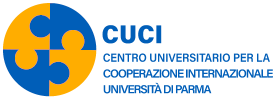Senegal
|
Senegal was one of the most important constituent elements of French colonial rule in West Africa (i.e. French West Africa): in fact, Dakar was the capital of this portion of the colonies. Also thanks to the major French investments in the colony and the place then occupied by Senegal in the geography of decolonisation, the country is one of the most developed in the whole of West Africa, despite needing adequate reforms in some areas to consolidate its growth. Having achieved independence from France in 1960, Senegal formed a confederation with Gambia - a country that constitutes a kind of enclave on Senegalese territory - in 1982, then dissolved seven years later at the behest of then Senegalese President Abdou Diouf. Since then, relations between the two countries have deteriorated somewhat, and the execution of two Senegalese citizens in August 2012 has led to their further escalation. Relations with Mauritania have also soured since 1989, following a number of border incidents that led to riots in both countries, causing hundreds of casualties. In the region, Senegal also has controversial relations with Guinea Bissau, since the latter constitutes a base for the secessionist Casamance movement, which has been fighting with the central government in Dakar for 30 years. Internationally, it has historically been close to Western positions and, in particular, to the former motherland France and the United States. In 2005, after ceasing to recognise Taiwan, the country officially established diplomatic relations with China: it is precisely Beijing, together with the Arab countries of the Gulf, that represents an interesting new economic partner. In 2010, a statue to the African Renaissance, built by North Korea and costing an estimated USD 70 million, was inaugurated in Dakar: a sign that the country is also developing relations outside the traditional ones. [Enciclopedia Treccani] |
||
|
|
|

